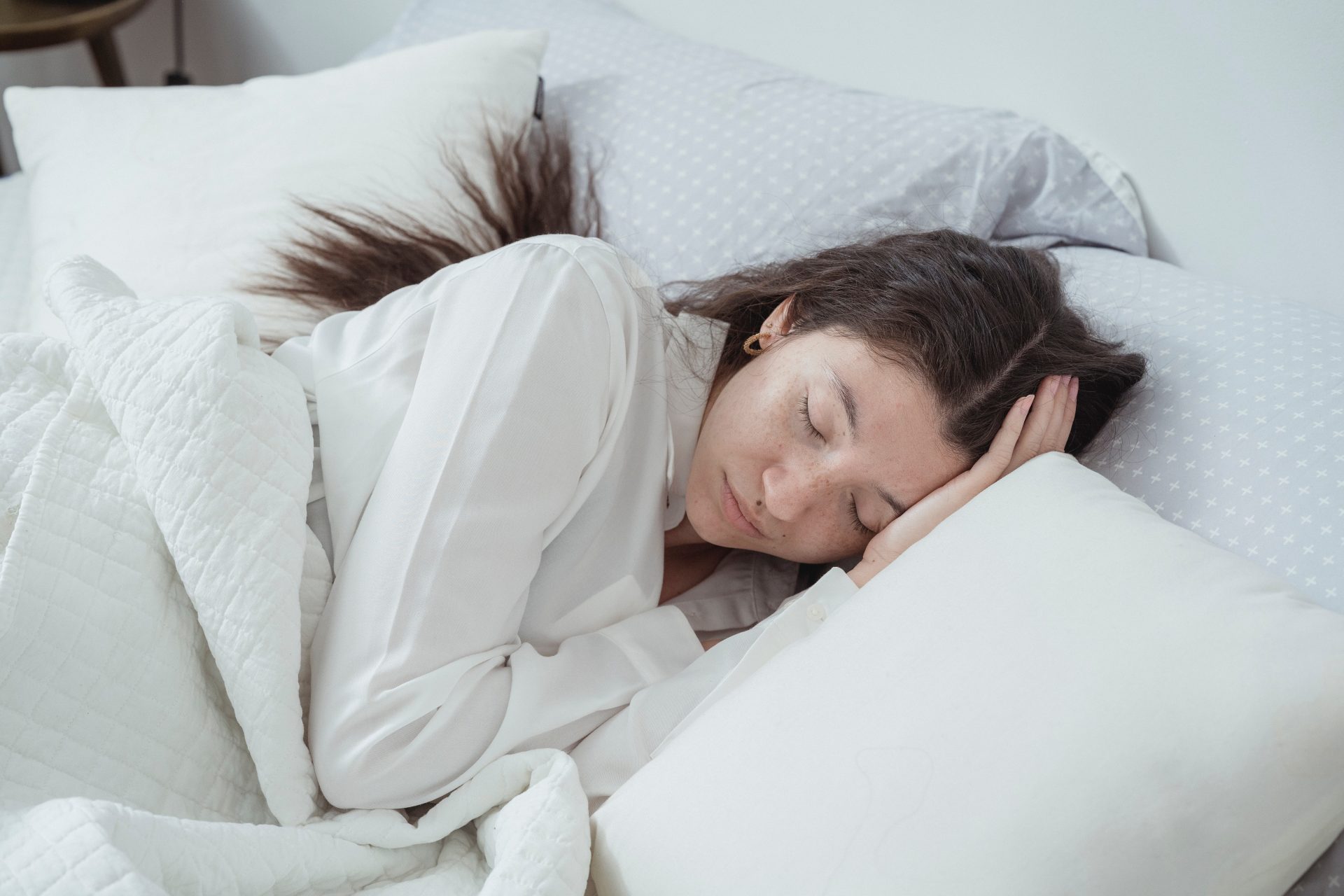Have you ever noticed that you get night sweats or sleepless night before your period? An expert explains how the menstrual cycle impacts your sleeping.
A bad night’s sleep is annoying, but rarely something to worry about. It might be caused by your neighbours clattering around in the middle of the night or the stress of a deadline you can’t get off your mind. But if you are noticing frequent changes to your sleep, you might want to take a closer look. That’s because certain phases of sleep can be altered by hormonal changes that occur with the menstrual cycle.
Understanding what’s going on is the best way to work with your body to get better sleep – so we asked the experts when and why we might experience disruptions and what to do about them.
You may also like
Exercise and your period: how to maximise your workout according to your hormones
The follicular phase and sleep
As your period ends and you prepare for ovulation, you are in your follicular phase. This tends to be a more settled phase of sleep – what you might count as your ‘normal’ sleep – and for the seven to 10-day phase you can expect your regular amount of shut-eye without feeling too disrupted.
Your period, PMS and sleep
The luteal phase is when things get a bit more complicated. The phase begins after ovulation and continues into the first few days of your bleed. During that time, your progesterone and oestrogen rise then fall. This hormone surge means it’s the most common time for sleep issues: according to the National Sleep Association in America, 23% have poor sleep in the week leading up to their period and 30% of women report disturbed sleep during their bleed. That’s worse in women with PMS, who are twice as likely to experience insomnia during their period.
“During the luteal phase of menstruation (around 14 days before a period begins), levels of energy expenditure are thought to increase,” explains Kim Plaza, technical nutrition advisor at Bio-Kult. It’s because the hormonal fluctuations require energy, with some studies showing we can burn up to an extra 500 calories a day. “That can lead to more daytime tiredness,” explains Plaza.

As for the actual sleep? “The luteal phase has also been associated with changes in body temperature and reduced rapid eye movement (REM) sleep, which are linked to reduced sleep quality and more nighttime wakefulness.”
That all comes down to the change in progesterone levels. A 2010 study found that the progesterone rise was associated with an elevated nighttime body temperature and a less amplified circadian rhythm. Those pre-period night sweats that stop you sleeping? That’s a real thing. And that change in temperature was also related to an increased slow-wave sleep pressure in the daytime, again making us feel more lethargic.
As the luteal phase continues into your period, your sleep quality remains impacted. A 2019 study found that sleep efficiency decreases by 3.3% and you wake up on average an extra three times a night, adding an extra 15 minutes of awake time into your sleep schedule.
How to look after your sleep around your cycle
Notably, not everyone feels huge surges of sleepiness or wakefulness depending on where they are in their cycle and just responding to your natural sleep urges will probably keep everything ticking along. But if you are struggling with your sleep, Plaza urges you to maintain a regular routine.
“This includes waking up within the same 90-minute window each day and eating at similar times. The circadian rhythm is dictated largely by our exposure to daylight and stress, so the more our wake-up times fluctuate, the more our hormones will need to adjust,” says Plaza. For example, the stress hormone cortisol naturally spikes in the morning to help wake us up – but if you have too much cortisol circulating later in the day, it may be harder for the sleep hormone melatonin to have an effect.
You may also like
Daylight saving time: the benefits of morning sunlight, and why you should go outside when you wake up
“A routine that keeps us calm may prevent spikes in stress hormones and promote wellbeing. If you find that stress levels begin to rise during the end of your cycle, consider keeping a note of the times that you’re getting up – it may provide a useful clue,” adds Plaza.
“Eating meals at similar times each day also ensures that we are also stabilising appetite hormones, such as ghrelin and leptin, which can impact our sleep. As our appetite can change with the fluctuating energy demands of our cycle, sticking to a regular eating pattern will allow our bodies a chance to control blood sugar and keep energy levels balanced.”
Images: Pexels
Source: Read Full Article
